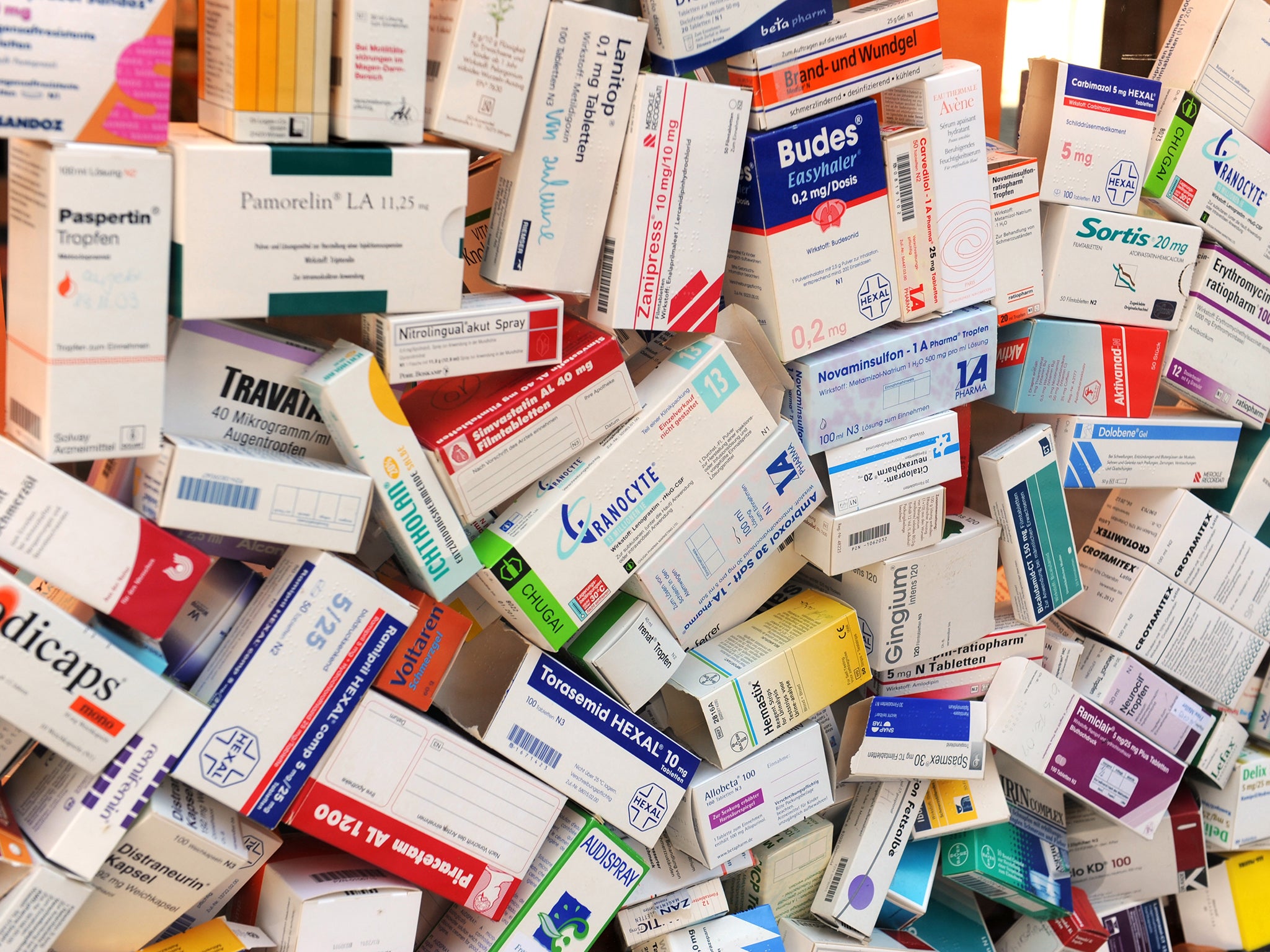Can you take prescription drugs into Dubai? A guide on UAE medication rules
After a British man was arrested for carrying anti-anxiety medication, we look at what the rules are when travelling to the United Arab Emirates

Your support helps us to tell the story
From reproductive rights to climate change to Big Tech, The Independent is on the ground when the story is developing. Whether it's investigating the financials of Elon Musk's pro-Trump PAC or producing our latest documentary, 'The A Word', which shines a light on the American women fighting for reproductive rights, we know how important it is to parse out the facts from the messaging.
At such a critical moment in US history, we need reporters on the ground. Your donation allows us to keep sending journalists to speak to both sides of the story.
The Independent is trusted by Americans across the entire political spectrum. And unlike many other quality news outlets, we choose not to lock Americans out of our reporting and analysis with paywalls. We believe quality journalism should be available to everyone, paid for by those who can afford it.
Your support makes all the difference.A British man, 61-year-old Perry Coppins, is being detained in Dubai after he was arrested for carrying anti-anxiety medications through customs. He was put in jail for five weeks while awaiting his first trial, and faces a potential four-year jail sentence.
The story has highlighted the need for extra vigilance when travelling to the United Arab Emirates (UAE) with prescription drugs.
What drugs was Mr Coppins carrying?
The maritime security officer from Nottingham had three types of anxiety medication with him: Temazepam, Clonazepam and Citalopram. All three are legal in the UAE.
Why was he arrested?
The customs officer said he had “too many pills” as he was carrying six months’ worth of medication; Mr Coppins works on long sea voyages away from home and has to take enough with him to last the duration. He had all the relevant prescriptions to accompany the drugs, which he has been taking for 21 years, but a customs official at Fujairah seaport reported him to the CID and Mr Coppins was promptly arrested.
Is the UAE strict when it comes to prescription drugs?
The UAE has a very strict, zero-tolerance anti-drugs policy and conducts thorough searches at its airports using highly sensitive equipment.
“There is zero tolerance for drugs-related offences,” states the Foreign Office in its UAE advice. “Possession of even the smallest amount of illegal drugs can lead to a minimum four-year jail sentence.”
Some drugs and medications that may be purchased over-the-counter in other countries are classified as controlled substances in the UAE and are illegal to possess.
The UAE embassy advice says: “Individuals may bring medicine into the country for their personal use. Up to three months’ supply of a prescription item can be brought into the country by a visitor and 12 months’ supply by a resident if they can produce a doctor’s letter or a copy of the original prescription.”
It adds: “Visitors must take care to ensure that medicines and medications prescribed in their home countries are not restricted before travelling to the UAE.”
Which prescription medications are illegal in the UAE?
Visitors are advised to contact the Ministry of Health drug control department to check whether their medication is on the controlled list and needs prior permission to be brought into the country.
The Ministry of Health lists all unauthorised medicines on its website, with 71 currently prohibited. If you’re visiting the UAE, it’s best to check any medication you plan to take against this list; medications which are completely legal in the UK, such as painkillers containing codeine, can get you arrested and convicted when travelling through customs there. For example, Exedrin Tension Headache Tablets, Tylenol Arthritis Pain Caplets, Niquitin Mint Lozenges and Otrivin Nasal Spray are all on the banned list.
While Mr Coppins’ medications are not on the list of unauthorised drugs, he had six months’ worth, rather than the stipulated maximum of three months’ worth for visitors as detailed on the embassy website.
What will happen to Mr Coppins now?
He has reportedly declined rapidly since being forced to go without medication, suffering intense withdrawal side effects such as hallucinations, stress, extreme weight loss, pain, bouts of blindness and uncontrollable sweating. Mr Coppins has since been diagnosed with prostate cancer, which authorities are refusing to give him treatment for.
Radha Stirling, CEO of the British-based human rights NGO Detained in Dubai which is representing Mr Coppins, released the following statement: “UAE laws on medicines are often vague and frontline law enforcement officials are frequently unaware of exactly what the rules permit or prohibit; so they make uneducated and arbitrary judgment calls.
“In fact the the medications which Perry possessed are perfectly legal in the UAE, provided the patient has prescription documentation, which Perry has. The initial mistake of the customs officer should never have escalated into criminal charges; but this reveals the lack of professionalism within the legal system, and what appears to be the capriciousness of the Public Prosecutor’s office.
“Perry needs urgent treatment for his prostate cancer. To deny him this in a timely fashion is a gross violation of his human rights. We hope that the UAE will show compassion to Perry and his children, and release him immediately, so that he can return home for the medical treatment he needs.”
Join our commenting forum
Join thought-provoking conversations, follow other Independent readers and see their replies
Comments